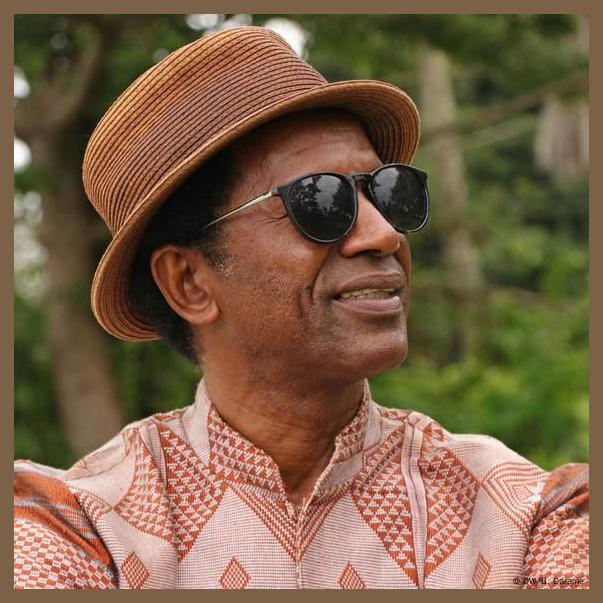 Zé Manel
Zé Manel
Zé Manel: The Voice of Post-Colonial Africa
Early Life and Activism:
José Manuel Tudela Camelo, better known as Zé Manel, was born in 1958 in Portuguese Guinea (now Guinea-Bissau). Witnessing firsthand the struggles for independence, he emerged as an outspoken critic of colonialism and a fervent advocate for African liberation.
Musical Beginnings:
In the 1980s, Zé Manel formed the band "Os Táxi," renowned for its fusion of traditional African rhythms with modern rock influences. Their politically charged lyrics resonated deeply with a generation yearning for freedom and self-determination.
"África Não É Independente" (Africa Is Not Independent):
In 1984, "Os Táxi" released the seminal album "África Não É Independente." The title track, a poignant anthem of protest, became an iconic representation of the post-colonial era. Zé Manel's powerful vocals and evocative lyrics exposed the lingering vestiges of colonial rule and economic exploitation that plagued the continent.
Challenges and Controversies:
Zé Manel's outspoken views often drew the ire of authorities. He faced censorship, arrests, and even threats of exile. However, his unwavering commitment to social justice kept him steadfast in his pursuit of artistic expression.
Discography:
Over the decades, Zé Manel has released a prolific body of work, including:
* África Não É Independente (1984)
* Última Missão (1987)
* Tradição (1993)
* Esperança (2001)
* Mundo Novo (2008)
Members:
Throughout his career, Zé Manel has collaborated with a diverse group of musicians, including:
* Zé Santos: Guitar
* Josué Andrade: Bass
* Paulino Vieira: Percussion
* Djamel Edine: Guitar and Vocals
Legacy:
Zé Manel's music continues to inspire generations of Africans and activists worldwide. His unwavering advocacy for freedom and justice has earned him the title "the Voice of Post-Colonial Africa." His powerful lyrics and haunting melodies serve as a testament to the enduring power of music to galvanize change and promote dialogue.
Early Life and Activism:
José Manuel Tudela Camelo, better known as Zé Manel, was born in 1958 in Portuguese Guinea (now Guinea-Bissau). Witnessing firsthand the struggles for independence, he emerged as an outspoken critic of colonialism and a fervent advocate for African liberation.
Musical Beginnings:
In the 1980s, Zé Manel formed the band "Os Táxi," renowned for its fusion of traditional African rhythms with modern rock influences. Their politically charged lyrics resonated deeply with a generation yearning for freedom and self-determination.
"África Não É Independente" (Africa Is Not Independent):
In 1984, "Os Táxi" released the seminal album "África Não É Independente." The title track, a poignant anthem of protest, became an iconic representation of the post-colonial era. Zé Manel's powerful vocals and evocative lyrics exposed the lingering vestiges of colonial rule and economic exploitation that plagued the continent.
Challenges and Controversies:
Zé Manel's outspoken views often drew the ire of authorities. He faced censorship, arrests, and even threats of exile. However, his unwavering commitment to social justice kept him steadfast in his pursuit of artistic expression.
Discography:
Over the decades, Zé Manel has released a prolific body of work, including:
* África Não É Independente (1984)
* Última Missão (1987)
* Tradição (1993)
* Esperança (2001)
* Mundo Novo (2008)
Members:
Throughout his career, Zé Manel has collaborated with a diverse group of musicians, including:
* Zé Santos: Guitar
* Josué Andrade: Bass
* Paulino Vieira: Percussion
* Djamel Edine: Guitar and Vocals
Legacy:
Zé Manel's music continues to inspire generations of Africans and activists worldwide. His unwavering advocacy for freedom and justice has earned him the title "the Voice of Post-Colonial Africa." His powerful lyrics and haunting melodies serve as a testament to the enduring power of music to galvanize change and promote dialogue.